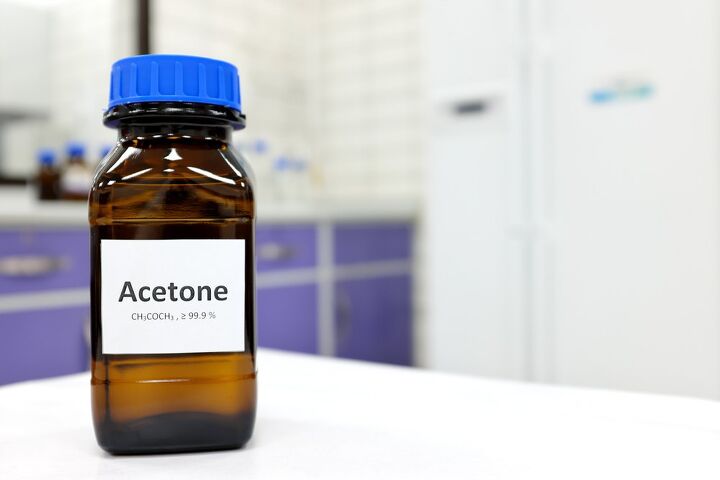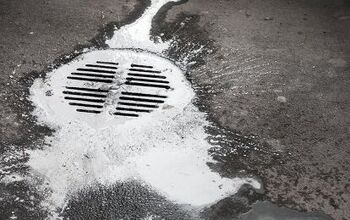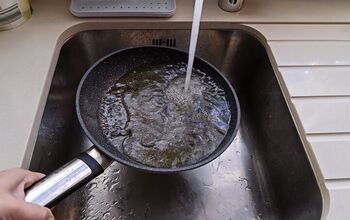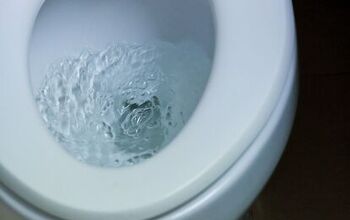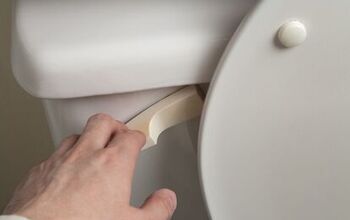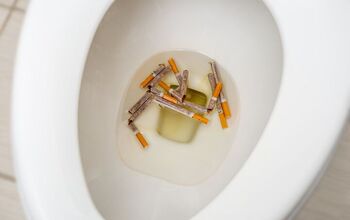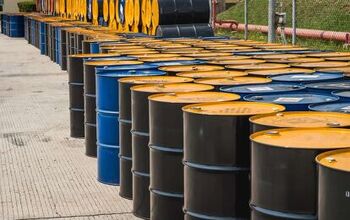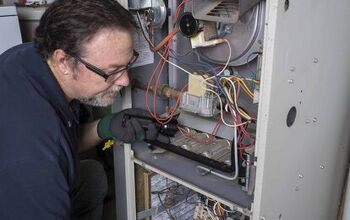Can You Pour Acetone Down The Drain? (Find Out Now!)

In the field of nail art, acetone is one of the most regularly utilized materials. Whether you’re a casual nail painter or a salon owner who does acrylic nails and overlays regularly, you’re likely to have acetone on hand.
It’s easy to believe it’s mainly innocuous because it’s so commonly used. After all, if it’s so widespread, it has to be true, right? If everyone uses it, why would you need a special means to dispose of it? Is it, nevertheless, possible to pour acetone down the drain?
Acetone should never be poured down the drain. Acetone is a highly potent and dangerous chemical that can harm plumbing and the environment. Acetone will simply flow through water treatment plants unaffected, posing a serious threat to wildlife, ecosystems, agriculture, and human health.
If you have some acetone that you need to get rid of, you’ll have to think about it. This is unlikely to be the information you were looking for when you arrived here today, but thank goodness you did your homework first!
Do You Need to Hire a Plumber?
Get free, zero-commitment quotes from pro contractors near you.

Can I Pour Acetone Nail Polish Remover Down The Sink?
Certainly not. If acetone gets into the water system, it’s terrible for the environment. If you have PVC pipes, the solvent may cause them to melt. Even if you don’t have PVC pipes, it can wreak havoc on your plumbing system.
The first thing to remember about why this is a bad idea is that acetone is a strong solvent. While we use it all the time to get rid of old nail polish or false nails, it is still a powerful chemical at its core. And it can cause problems that we don’t consider when we use it on cotton balls.
Most Pipes Are Plastic
Allowing your acetone to run down the drain may cause the pipes to melt. It works on the PVC in the same way it works on your nails, dissolving the layers until the PVC is completely gone.
While a small amount of acetone is unlikely to fully destroy your plumbing system, if you have a large amount of acetone on hand, you may be able to dissolve the majority of the building’s piping. And that’s a disaster you’d prefer to avoid.
Pouring Acetone Down The Drain Affects Wildlife
Whatever amount of acetone you pour down the drain, it will almost certainly end up in a sewage treatment facility before being released out into the wild.
While sewage treatment plants are great at clearing up trash and other difficulties, they aren’t very good at dealing with chemicals.
As a result, the acetone that goes down your drains could wind up in a river without appreciably changing its composition.
Acetone Is Flammable
Do you want the sewer system to blow up all over the place? Most likely not. As a result, don’t dump it down the drain!
How Do You Dispose Of Used Acetone?
Cotton balls, pads, and cloths that have been soaked in acetone can be disposed of properly. Any extra liquid acetone, on the other hand, should be sent to a hazardous waste disposal center.
As a result, you can’t pour acetone down the drain without causing a sewer system explosion. So, what are you going to do with the trash?
Thankfully, depending on the type of product you’re discarding, you have two basic options for disposal. There are two types of acetone waste: solid (such as cotton balls or pads) and liquid (such as acetone) (the kind used for soaking or leftover from polish removal).
Throw It In The Trash
It’s important to remember that the cotton balls can’t be completely saturated, so no dripping-wet cotton balls or pads should be thrown away. Place them in a plastic bag, close it, and throw it away with the rest of your trash.
It can be thrown out with the trash, just like anything else. If you have a larger, bulk supply of these old beauty goods, you most likely own a salon or manage a business. Try to figure out how to use a dumpster so you don’t have to fill trashcan after trashcan with your discarded items.
What If They’re Bulk?
Wait until right before the truck arrives if you’re discarding goods with solvent on them in bulk so the fumes don’t harm humans or animals. When it comes to leftover liquid acetone, there’s only one ethical option: take it to a hazardous waste facility.
It’s the only way to get rid of your acetone without harming yourself or the local fauna. Even if you aren’t aware of it, there is a hazardous waste site near you.
Do You Need to Hire a Plumber?
Get free, zero-commitment quotes from pro contractors near you.

What Happens If You Pour Acetone In The Drain?
You risk melting your pipes, causing environmental harm, or even causing an explosion. We’ve said it before, but it bears repeating: pouring acetone down the drain is a nightmare. It causes a lot of costly harm to your plumbing as well as the environment.
It should never, ever, ever be flushed down the toilet, even in small amounts. It’s considerably worse if you’re trying to get rid of significant amounts of the stuff. Always dispose of acetone in a hazardous waste facility.
Acetone Is Potent
While a small amount of acetone won’t entirely melt your pipes, pouring a large amount or a small amount regularly will produce weak spots, corrosion, and, eventually, costly leaks.
There’s also the possibility that it will fully melt through your pipes. Wildlife doesn’t react well to acetone, either. You might as well dump it directly into the nearest body of water if you’re putting it down the drain.
Where Does It Go?
If you have a city sewer connection, your wastewater is sent to a sewage treatment facility, even acetone spilled down the sink.
They’re excellent at cleaning and disinfecting most organic materials before returning them to some form of water.
Acetone Is Worse In A Septic Tank
Acetone will most likely seep from the tank into your yard, causing the damaged plants and sick animals to be visible from your window.
The most dramatic, if not the most common, the argument is that it could explode. Acetone is a very flammable substance. With just one spark, the vapor itself can trigger explosions.
And the last thing you want is for your kitchen sink or a nearby waterworks plant to blow up because you didn’t want to drive to a hazardous waste facility.

Heather is a passionate writer who loves anything DIY. Growing up, she learned everything from home repairs to design, and wants to share her tips with you. When she's not writing, she's usually hiking or searching for her next DIY project.
More by Heather Robbins



